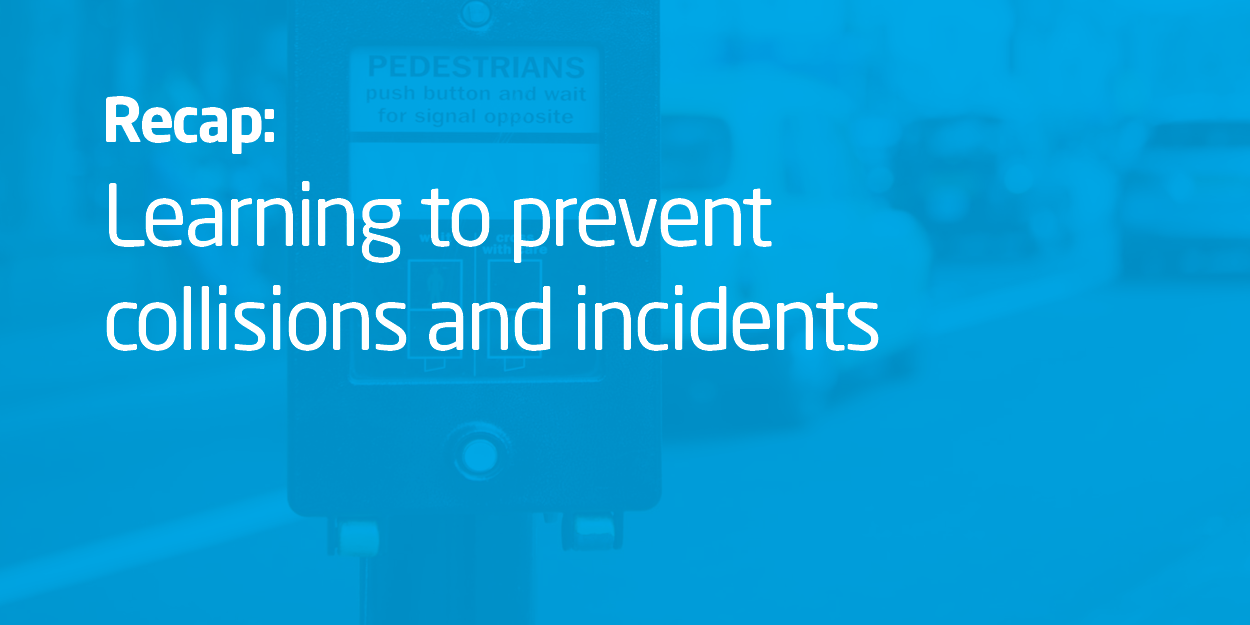
Under the CLOCS Standard, clients and contractors have the clear responsibility to obtain, understand and act on collision/near-miss data from their fleet operations, and to work together to remove/reduce risk of future collisions on their projects.
In the breakout groups for the most recent CLOCS Safety Forum, delegates discussed questions like ‘what actions should every construction client, contractor and fleet operator take to ensure effective reporting, understanding and positive action to prevent future collisions?’ The questions were designed to identify and drive positive action by clients and contractors as well as by the fleet operators – action including effective reporting, identifying trends, changing arrangements, and improving training/policies/processes.
Summary of CLOCS Safety Forum #5 May 2021 – Learning to prevent collisions and incidents:
- There was general agreement that there are often/usually processes in place to report ‘normal’ onsite data but that offsite/logistics data was never requested or provided. One delegate sends out ‘site returns’ asking for data on onsite accidents, incidents and other key risks, but feels that logistics isn’t specifically requested though it could be.
- It was generally felt that the process hasn’t been the issue – people simply haven’t been requesting the data – client to contractor, contractor to operator.
- There can be a delay in getting information from a vehicle if they are impounded by the authorities, and thus completion of the investigation, and providing information to the contractors/clients.
- Impact of legal privilege.
- Company reporting systems are different and varying in complexity with scale going from local to global systems.
- Reporting to external systems can be time consuming/resource draining, to such an extent you have to re-type information into an online system rather than upload existing data.
- A large number of projects and major clients have near miss/close call processes/apps etc. and reporting to these systems can be restricted
- Need for a system – ISO/BS/PAS standard, FORS got knocked as London system
- We need to have a look at the RSSB/NR close call reporting system.
- It would be advantageous for someone like CLOCS/CCLG to define:
- What data should be reported – major collisions, minor collisions, near misses?
- How often – as it happens, weekly, monthly, quarterly?
- How it should be reported – format, method, etc.?
- Something should be included in contracts for the provision of collision data so that it is understood and accepted from the outset and operators and contractors can ensure they have processes in place to meet such contract requirements.
- One delegate mentioned that operators may be ‘fearful’ of passing up such data for fear of repercussions.
- There are plenty of good training course available including the introductory FORS collision investigation classroom and eLearning.
As a result, CLOCS will be working with our industry partners to identify, deliver and communicate guidance for all Champions to follow.
CLOCS Champions only: join the CLOCS Safety Forum invitation list to access tips and tools about how to improve your investigation and management processes. Email jason@secbe.org.uk to learn more and join us.
Become a CLOCS Champion to access the CLOCS Safety Forum


